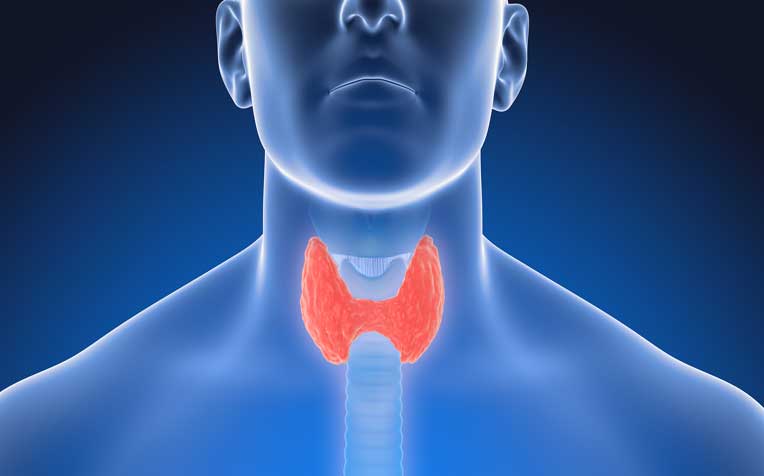
Thyroid gland is located in the neck and the hormones it produces are responsible for controlling a wide range of bodily functions.
What is the thyroid?
"The thyroid is a small gland shaped like a butterfly that sits in the lower part of your neck in front of your windpipe," say doctors from the Department of Endocrinology at Singapore General Hospital (SGH), a member of the SingHealth group.
Function of the thyroid
The function of the thyroid gland is to produce hormones. The main hormones released by the gland are thyroxine (T4) and tri-iodothyronine (T3).
The normal action of the thyroid hormones is to keep all bodily functions occurring at a correct rate. It therefore has actions on the heart rate, bowel activity, skin, muscle and other organs. The production of T4 is controlled by another hormone known as thyroid stimulating hormone (TSH), which is produced by the pituitary gland, a control centre in the brain.
What health problems are associated with the thyroid gland?
Problems with the thyroid gland are either caused by abnormal function (overactivity or underactivity) or abnormal growth of the gland.
Thyroid overactivity is known as hyperthyroidism, while thyroid underactivity is known as hypothyroidism.
-
Hyperthyroidism is a condition where the thyroid gland produces too much thyroid hormone. The body’s metabolism increases and you may experience intolerance to warm temperature, palpitations, irritability, muscle weakness and weight loss in spite of an increased appetite.
- The reverse is hypothyroidism where the thyroid gland produces too little hormone. The body’s metabolic rate decreases and you might feel lethargic, become intolerant to cold temperature and gain weight despite a poor appetite.
Abnormal growth of the gland may be in the form of a localised swelling, or multiple swellings within the thyroid.
- Goitre is a term to describe an enlargement of the thyroid gland. This enlargement may be physiological (not a disease) and can occur in puberty and pregnancy. However, in some cases, goitre can cause compression of the windpipe or gullet and may need to be removed surgically.
Ref: V10
Check out our other articles on thyroid:
HYPERthyroidism: How is it treated? Are there side effects?
HYPOthyroisism: Causes and Treatment
Tips to Manage Thyroid Disorders
Thyroid Cancer: Causes, Types, Symptoms
Contributed by















 Get it on Google Play
Get it on Google Play